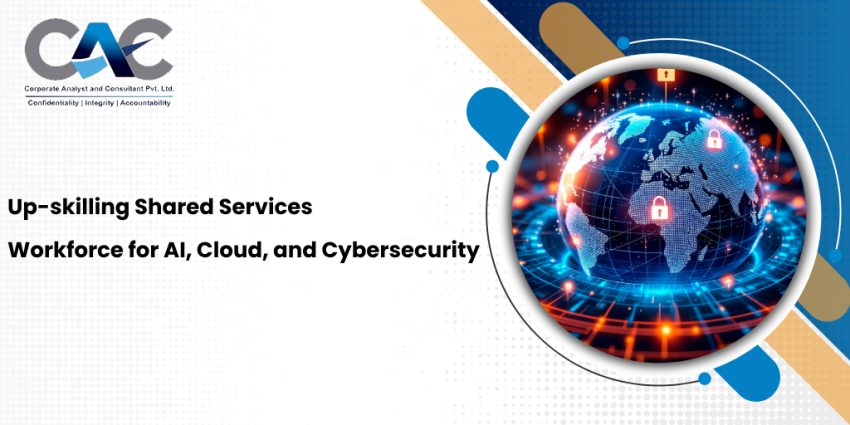Technology is evolving, and this is changing the business environment at a very high rate. The concept of Artificial Intelligence (AI), cloud computing, and cybersecurity are no longer the matter of choice — they have become a part of how organizations do their business and compete. Shared services teams have been vital in this dynamic environment to provide effective centralized services in finance, human resource, information technology among other functions. In order to remain at par with emerging technologies, companies should pay attention to the up-skilling of the shared services workforce that is capable of managing AI-based automation, cloud solutions, and enhanced cybersecurity demands.
The Need for Up-skilling in Shared Services
The purpose of shared services centers was initially aimed at enhancing efficiency, standard procedures and lowering costs. But with the digital transformation taking place in organizations, these centers are bound to be performing more complicated tasks with better technologies. The employees are no longer able to rely on the traditional administrative skills only. Rather, they have to learn the functionality of AI tools, the functionality of cloud systems and how to ensure safety in a connected environment.
The process of up-skilling the workforce means that shared services teams can stay productive and relevant. It aids employees in leaving behind routine, manual jobs and move to the work with higher values of data analysis and optimization of processes as well as technology management. More to the point, it helps the organization to be competitive through better service delivery and decision-making..
Preparing for AI Integration
Shared services are being altered by the Artificial Intelligence. AI can make the invoice processing swift and more precise, as well as the workflow forecasting. But in these systems to be effective, the employees must learn how to cooperate with them.
In AI, up-skilling entails training the teams to process data and understand the information produced with AI and to make decisions. It also entails the training of how to deal with the exceptions which cannot be dealt with by automation. As an example, employees will be able to learn to spot patterns of AI reports or modify algorithms according to business requirements. The employees will be able to work on strategic problem-solving rather than on routine activities when they are trained properly.
Building Cloud Proficiency
Shared services nowadays revolve around cloud computing. It enables teams to gain access to systems, and work remotely and efficiently scale plans. However, cloud based systems also demand a change in the thinking and working of the employees.
The cloud proficiency up-skilling entails educating workers in cloud platforms, data storage, and integration of workflow. The staff should also know how to manage costs and comply with cloud environments. Through such capabilities, shared services teams are able to become more flexible and fast, in addition to being able to manage remote operations safely. A workforce that is conversant with cloud technology also aids in ensuring that the organization is easily able to adapt to the changing business demands.
Strengthening Cybersecurity Awareness
With the increased digitization of shared services, there is a threat of cyber threats. Such facilities normally deal with sensitive information including employee files, financial dealings, and secret reports. One security breach can hurt the image and operations.
To combat this, the problem of up-skilling should be incorporated with rigorous cybersecurity training. The employees must be taught how to detect phishing attacks, use secure passwords, and use safe data-handling practices. IT and support teams are also required to be trained in monitoring systems, unusual activity detection and rapid reaction to threats. An awareness culture of cybersecurity in all departments can be built to ensure that the protection does not remain in the IT department but is the role of all.
Conclusion
The further development of shared services is related to the adaptation of the workforce to digital transformation. Organizations can achieve this by emphasizing on AI, cloud computing, and cybersecurity up-skilling so that their shared services teams can be competent, safe, and creative. Such a competent and self-assured labor force does not only maximize the performance of any organization, but also helps to sustain the business in the long term. In the technological world, people are the best to invest to keep up.
Also Read: The Role of AI in Global Shared Services: Understanding the Basics

















